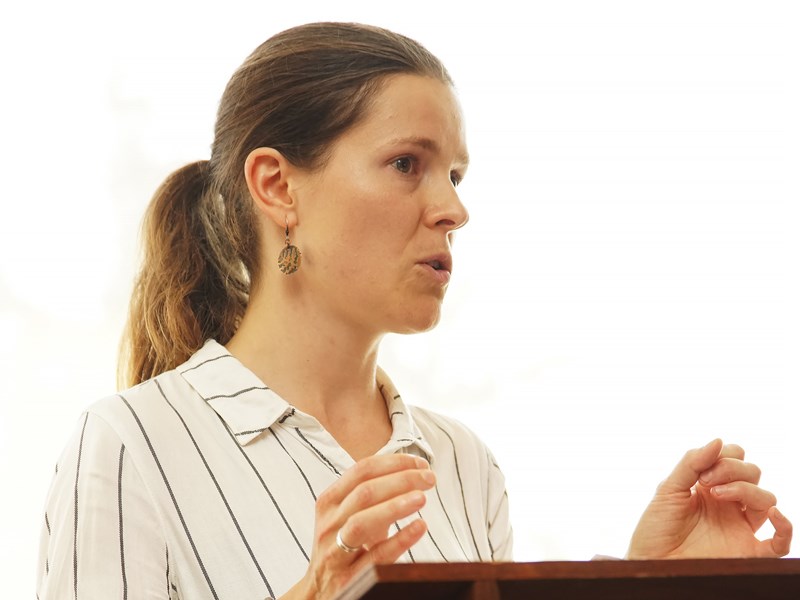City of Powell River Council will consider spending $28,000 to conduct a thermal energy study in Powell River Recreation Complex.
At the Tuesday, September 3, committee of the whole meeting, sustainability planner Anastasia Lukyanova outlined details of the study, which, in alignment with the city’s carbon-neutral action plan, calls for reducing emissions from municipal buildings.
Lukyanova said her report to the committee was a request for funding for the thermal energy study. She said the recreation complex is the city’s single largest emission source and is responsible for about a third of the city’s carbon footprint. More than $300,000 per year is spent at the facility in utility costs.
“It is a big emission source for us,” said Lukyanova.
She said the city has implemented a number of recent initiatives to reduce those utility costs and emissions. For example, this past summer, there was the installation of the new low-emissivity ceiling in the arena and the rink. It has solved the problem of the old foam falling off, but the main purpose is to not radiate heat onto the ice so there are savings from the refrigeration, said Lukyanova.
Also, there was purchase of a unit that is allowing the Zamboni machine to flood the ice with cold water, rather than with water that had been preheated with natural gas.
Evergreen Theatre received new LED lighting and the lighting in the whole recreation complex will be upgraded to LED in the coming months, according to Lukyanova.
“Those are some of the initiatives that we have implemented at the complex and now we have an opportunity working with FortisBC,” said Lukyanova. She added that there is an opportunity to conduct a thermal energy study, and that’s looking at natural gas usage, which is 90 per cent of the carbon footprint at the recreation complex. The study will examine ways of reducing it.
“The beauty of this program is FortisBC will actually reimburse us half the cost of the study upon completion, and the study will provide us specific detail with financial payback from emissions reduced to further reduce our utility costs,” said Lukyanova. “When we implement those recommendations with Fortis BC funding, they will reimburse us the remaining 50 per cent, so the study will actually end up being 100 per cent covered. It’s a fantastic opportunity for us to further reduce our utility costs, especially given that FortisBC is supporting us.”
Lukyanova recommended that up to $28,000 be allocated from the city’s climate action reserve fund for conducting a thermal energy study in the recreation complex.
Councillor George Doubt said he supports going after these opportunities where somebody else is paying for the studies, which hopefully saves the city money and reduces the carbon footprint.



